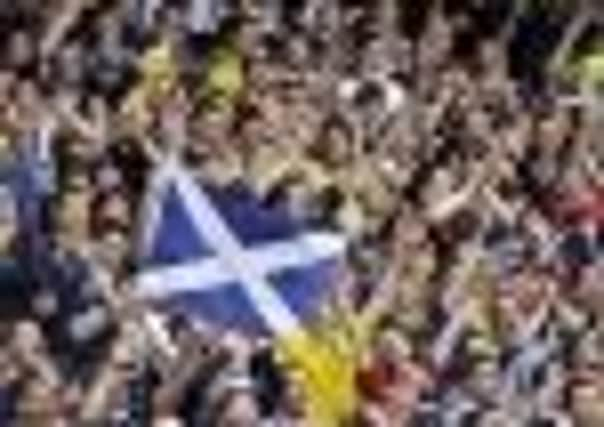SFA face Friday nights dilemma at World Cup fixture dates meeting


Ogilvie will head the three-man Scottish delegation, with chief executive Stewart Regan and national team manager Craig Levein, at the talks with group rivals Croatia, Serbia, Belgium, Macedonia and Wales.
If no consensus can be reached on the fixtures, which will commence in September next year, the schedule will be determined by a Fifa computer draw. It is a scenario Ogilvie is comfortable with and one which he revealed will soon become established practice in any case.
Advertisement
Hide AdAdvertisement
Hide Ad“From 2014, that’s the way fixtures in European Championship and World Cup qualifying groups are going to be decided, as they are in the Champions League and Europa League,” said Ogilvie.
“With the centralised TV rights coming into force in 2014, the governing bodies will actually set out what the fixture schedule is. I believe that’s the best way, to have a centralised fixture calendar which is agreed by the governing bodies. The games might work out in your favour, they might not. But I don’t really know how many other sports actually sit down in a room and try to agree fixtures amongst themselves. The correct way forward is for the governing body to select the fixtures. There could be just one more tournament [Euro 2016] after this one when it is decided by negotiations around a table.”
Scotland will seek the best possible outcome from today’s session nonetheless, with avoiding away assignments against Croatia, Serbia or Macedonia during periods of high temperatures in those nations among the items on Levein’s wish list.
“Craig has got some preferences, which I won’t go into detail of just now, but there are obviously areas like climactic issues to consider,” confirmed Ogilvie. “There are three countries from the Balkan area of Europe in our group. But even if you are away at these times, you have to address it and get on with it. So I wouldn’t make too much of it.
“At the end of the day, no matter how the fixtures come out, we still have to play all of these teams. We have discussed some preferences ahead of the meeting, but it’s not a major issue. The fixtures are all hard games and we have to play them accordingly, no matter the way they come out.
“We have spoken to various people who have attended these meetings in the past. But there is also the possibility that agreement can’t be reached, in which case it would go back to Fifa to decide.
“You would clearly want to agree the ideal fixture schedule for your own association if possible. But there are six different associations in that room. Everyone is not going to get everything they want. It could well go back to Fifa if just one nation failed to agree. We’ll wait and see if it comes to that.”
The SFA may have to trade off some of their preferences in return for opponents agreeing to play at Hampden on a Saturday afternoon, rather than the now Fifa and Uefa recommended Friday night slot.
Advertisement
Hide AdAdvertisement
Hide AdAlthough the SFA have been in talks with Strathclyde Police in a bid to ease their long-held opposition to staging games in Glasgow on a Friday night, Ogilvie admits there may be no choice in the matter on some occasions. “We are having ongoing discussions with the police about the Friday night situation in this country,” he said. “We hope they will relax their view of games taking place on a Friday night. The dates chosen by both Uefa and Fifa are Friday and Tuesday. So there could be some issues on that front.
“There could be inconvenience there as far as some of our supporters are concerned, but it could be the same on a Tuesday or Wednesday night. We are very well aware that football supporters in general definitely prefer a Saturday afternoon, there’s no doubt about that. The Friday night does cause some problems, we accept that.”
The campaign will again feature several ‘double-headers’, with two fixtures played during one international break. Levein is understood to favour having two consecutive home games in a double-header if possible.
“There are different ways of looking at it,” observed Ogilvie. “For the sake of supporters, two home games back-to-back might not be a preference from a financial point of view. But from the football side of things, there are advantages to two home games in a double header. There are pros and cons whichever way you look at it. We will do our best to get the fixture schedule we want. As soon as the fixtures are agreed, whatever they are, we will move forward and concentrate on the games.”